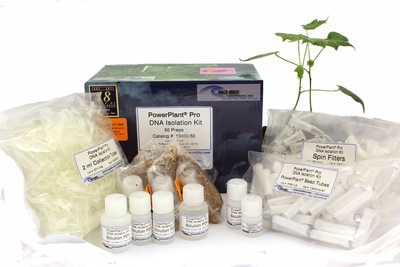Researcher cuts DNA extraction time from days to hours
Tuesday, 11 December, 2012
Durham University researcher Alice Rowland has benefited from the use of the PowerPlant Pro DNA Isolation kit in extracting DNA from the cells of arctic birch trees. Her investigations of patches of forest in the arctic conditions of Northern Sweden were hampered by slow DNA extraction, until the selection of the Mo Bio kit cut procedures down dramatically.
The forest patches are defined as self-contained areas of forest separated by arctic tundra, and are set apart from the main tree line. Two species of birch have been observed within these patches: Betula nana (Diploid dwarf birch) and Betula pubescens subsp. czerepanovii (Tetraploid birch). Previous studies undertaken in Iceland have shown introgressive hybridisation between Betula pubescens and Betula nana.
Observing morphological patterns during population studies in Northern Sweden prompted researchers to suspect similar genetic factors may have been contributing alongside environmental features to affect the structure of the patches. The shape and arrangement of forest patches can play a role in how the tree line expands, for example under the effects of global warming, making the subject an important topic in forestation research.
Once leaf and bud samples were collected across the sequence, there was some concern over the time required to extract pure DNA for rapid analysis and the sequencing of alleles for species comparison. Arctic plants have high concentrations of PCR inhibitors and previous use of the CTAB method was proving inefficient, sometimes taking up to two days to collect usable data.
The PowerPlant Pro DNA Isolation kit is specifically designed with tough sample types in mind, quickly isolating genomic DNA from difficult plant sample types such as strawberry leaf, cotton seeds and pine needles. Inhibitor removal technology in the kit takes out 100% of PCR inhibitors, polyphenolics and polysaccharides, resulting in pure DNA for downstream applications. This made the kit suitable for the Durham study.

In comparison to the previous technique, the kit showed huge benefits in both time and reliability, cutting down time spent extracting DNA to just a couple of hours. It was also found to be easy to adjust protocols to meet the individual needs of the user and optimise results.
“I was using the standard CTAB method for DNA extraction but found it to be quite temperamental with the birch specimens,” said Rowland. “It also took on average two days to collect results but with PowerPlant Pro I’ve managed to reduce this to two hours, and it’s reliable.”
Rowland has continued to use the PowerPlant Pro DNA Isolation kit for all subsequent DNA extractions and confirmed she would happily use it again in future research.
Droplet microfluidics for single-cell analysis
Discover how droplet microfluidics is revolutionising single-cell analysis and selection in...
PCR alternative offers diagnostic testing in a handheld device
Researchers have developed a diagnostic platform that uses similar techniques to PCR, but within...
Urine test enables non-invasive bladder cancer detection
Researchers have developed a streamlined and simplified DNA-based urine test to improve early...




